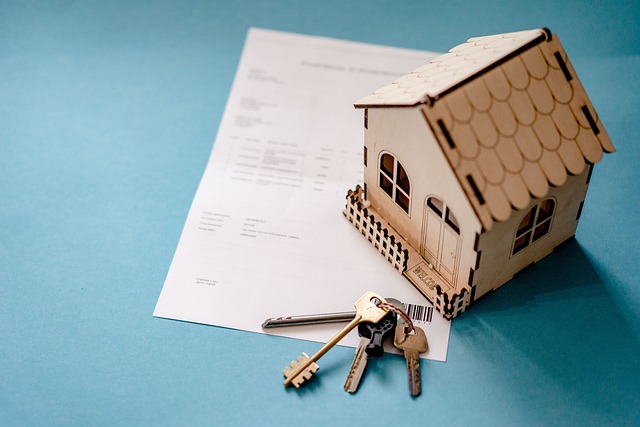Address Occupant Lookup (AOL) is a critical process for identity verification, fraud prevention, and legal compliance across sectors like law enforcement, healthcare, finance, and e-commerce. It involves collecting and maintaining accurate address data while respecting privacy laws such as GDPR and CCPA. Key aspects include obtaining explicit consent, securing data, and adhering to strict protocols for data collection, storage, and sharing. Best practices for managing AOL data involve multi-faceted security measures, regular audits, and compliance with industry-specific regulations. Future developments in technology, like AI, will enhance AOL accuracy but also raise ethical concerns regarding data privacy and user consent.
“In today’s data-driven world, addressing occupant lookup (AOL) has become a critical process for businesses and organizations. AOL involves retrieving and verifying occupancy details tied to specific addresses, serving various purposes from marketing to emergency services. However, navigating the legal landscape surrounding AOL is intricate, given the stringent data privacy regulations like GDPR and CCPA. This article delves into the essential aspects of legal compliance for AOL, exploring definitions, regulatory frameworks, consent mechanisms, best practices, industry-specific guidelines, and future trends.”
- Understanding Address Occupant Lookup: A Definition and Its Purpose
- Legal Frameworks Governing Data Privacy for Address Lookups
- The Role of Consent: Obtaining Permission from Individuals
- Compliance with Data Protection Regulations (GDPR, CCPA, etc.)
- Best Practices for Secure Data Storage and Management
- Navigating Industry-Specific Regulations for Address Lookup Services
- Future Trends in Legal Compliance for Address Occupant Lookup
Understanding Address Occupant Lookup: A Definition and Its Purpose

Address Occupant Lookup (AOL) is a process that involves verifying and identifying individuals or entities associated with a specific residential or commercial address. It serves as a critical component in various industries, from law enforcement and healthcare to finance and e-commerce. The primary purpose of AOL is to ensure accurate data collection, maintain privacy, and mitigate risks associated with addressing and identity verification.
By performing an Address Occupant Lookup, organizations can gain valuable insights into who occupies or has authority over a particular property. This information is essential for verifying identities, preventing fraud, and ensuring compliance with legal and regulatory frameworks. Accurate AOL practices help in building reliable databases, facilitating efficient services, and promoting secure transactions across different sectors.
Legal Frameworks Governing Data Privacy for Address Lookups

The legal frameworks governing data privacy for address lookups are complex and vary across jurisdictions, but they share a common thread: protecting individual privacy while enabling legitimate business needs. In many countries, laws like the General Data Protection Regulation (GDPR) in Europe and the California Consumer Privacy Act (CCPA) in the U.S. dictate how personal data, including addresses, can be collected, stored, and used. These regulations require explicit consent for data processing and demand organizations to implement robust security measures to safeguard sensitive information.
When conducting Address Occupant Lookups, businesses must adhere strictly to these legal frameworks. This involves obtaining appropriate consents, ensuring data is handled securely, and providing individuals with rights over their data, such as the right to access, correct, or delete personal information. Failure to comply can result in significant penalties, highlighting the importance of understanding and respecting data privacy regulations during address lookup processes.
The Role of Consent: Obtaining Permission from Individuals

In the context of Address Occupant Lookup (AOL), consent plays a pivotal role in ensuring legal compliance and respecting individual privacy rights. Before conducting any lookup or sharing personal information, it’s crucial to obtain explicit permission from the individuals associated with the addresses in question. This step is essential to upholding data protection laws and maintaining public trust. AOL processes often involve accessing sensitive occupant details, making consent an indispensable component to safeguard against potential legal repercussions and ethical breaches.
When seeking consent, organizations must be transparent about the purpose of the lookup, the types of information collected, and how it will be used. Individuals should have the right to grant or deny permission without fear of coercion or negative consequences. A clear and straightforward consent mechanism, typically in the form of a written agreement or digital opt-in, ensures that occupants are fully aware of their rights and the implications of sharing their address details for lookup purposes. This practice not only aligns with legal requirements but also fosters a culture of transparency and respect for personal privacy.
Compliance with Data Protection Regulations (GDPR, CCPA, etc.)

When conducting an Address Occupant Lookup, ensuring compliance with data protection regulations like GDPR and CCPA is paramount. These regulations are designed to safeguard personal data, including information about individuals living at specific addresses. Organizations must obtain lawful consent for processing such data and implement robust security measures to protect it from unauthorized access or disclosure. Failure to comply can result in significant fines and reputational damage.
For Address Occupant Lookup services, this means adhering to strict protocols for data collection, storage, and sharing. Organizations should only collect the minimum necessary data, store it securely, and provide individuals with the right to access, correct, or delete their information. Transparency is key; users should be informed about how their data will be used and given options to opt out where applicable. Regular audits and updates to data processing practices are essential to maintain compliance in this evolving regulatory landscape.
Best Practices for Secure Data Storage and Management

When managing data from an Address Occupant Lookup, it’s paramount to prioritize secure storage and management practices. This involves implementing robust access controls, encrypting sensitive information both at rest and in transit, and regularly auditing log files to detect any unauthorized access attempts. Using secure cloud storage solutions or on-premise servers with state-of-the-art firewalls can significantly enhance data security.
Best practices also dictate regular data backups and disaster recovery planning. This ensures that even if there’s a breach or system failure, critical Address Occupant Lookup data remains accessible. Additionally, adhering to data retention policies and industry standards for data privacy, such as GDPR or CCPA, is essential. Regular training of staff on data handling procedures and security protocols further reinforces the integrity and confidentiality of the stored information.
Navigating Industry-Specific Regulations for Address Lookup Services

Navigating industry-specific regulations is a critical aspect of providing accurate and legal Address Occupant Lookup services. Different sectors, such as finance, healthcare, and real estate, have distinct compliance requirements when it comes to accessing and verifying residential information. For instance, financial institutions often need to comply with Know Your Customer (KYC) rules, which mandate thorough checks on personal data, including addresses and occupants. These regulations are designed to prevent fraud and money laundering.
In the context of Address Occupant Lookup, service providers must ensure they have the necessary permissions and adhere to privacy laws when gathering and sharing occupant details. This involves understanding local data protection acts and industry-specific guidelines. For example, in the healthcare sector, patient confidentiality is paramount, and access to residential information should be restricted to authorized personnel only. Service providers must implement robust security measures and protocols to safeguard sensitive data.
Future Trends in Legal Compliance for Address Occupant Lookup

As technology advances, so too do the expectations and regulations surrounding data privacy and security. Future trends in legal compliance for Address Occupant Lookup (AOL) will likely focus on enhanced data protection measures to safeguard personal information. The implementation of more robust encryption methods and secure data storage solutions will be essential to prevent unauthorized access and potential data breaches.
Additionally, the integration of artificial intelligence and machine learning algorithms could streamline the AOL process, improving accuracy and efficiency while reducing human error. These technologies can analyze vast amounts of data quickly, enabling businesses to verify address information and occupant details more effectively. However, with great power comes greater responsibility; therefore, future regulations will need to address the ethical use of AI in data collection and processing to maintain transparency and user consent.
The legal landscape surrounding Address Occupant Lookup (AOL) is complex yet essential to navigate for businesses relying on this data. As AOL becomes more prevalent, understanding and adhering to data privacy regulations like GDPR and CCPA are crucial. Obtaining informed consent from individuals, implementing robust data security measures, and staying apprised of industry-specific rules are key best practices. By embracing these strategies, businesses can ensure legal compliance while leveraging AOL effectively in today’s digital era.



